As the agenda continues to be updated, speakers and panelists will be added to this list.

Pam Adams
Pam Adams is the Sustainability Planner at Centre Region Council of Governments. She prepares, monitors, coordinates and provides direction for the implementation of the Centre Region Climate Action and Adaptation Plan (CAAP). Working collaboratively with municipalities, other Council of Governments agencies, and other stakeholders, she assists with policies, programs, and initiatives that promote local environmental, energy, economic and social sustainability.

Jennifer Baka
Jennifer Baka is an assistant professor of geography in the College of Earth and Mineral Sciences. Her research focuses on how material, political and environmental processes interconnect and with what effects in the context of energy development.
Prior to joining Penn State, she was an assistant professor of geography and environment at the London School of Economics and Political Science and a postdoctoral associate at the Yale Center of Industrial Ecology, Yale School the Environment.
She earned her Ph.D. in environmental studies from Yale School, Master of Public Policy from the University of California Berkeley, and her B.S. in economics from the George Washington University.

Tom Bartnik
Tom Bartnik is the director of Penn State Center Pittsburgh. He oversees strategic relationships and the operations of the Center. In connecting Pittsburgh area stakeholders with the rich resources of Penn State, Tom works with leadership from the University Park and local Commonwealth campuses. Tom has expertise in urban planning and sustainable community design and development, as well as a B.A. in Political Science from the State University of New York Potsdam and a Master of Urban Planning and Policy from the University of Illinois at Chicago.

Reid Berdanier
Reid Berdanier is an assistant research professor in the Steady Thermal Aero Research Turbine (START) Laboratory at Penn State. He is also a member of the Graduate Faculty for Mechanical Engineering, as well as the Additive Manufacturing and Design (AMD) program. His research is currently active in the development and demonstration of novel experimental techniques for turbomachinery applications. These projects include internal development for temperature and heat flux measurements, as well as external partnerships and SBIR technology demonstrations.

Grant Bromhal
Grant S. Bromhal is Acting Director of the Mineral Sustainability Division. He is leading a team to facilitate an environmentally, economically, and geopolitically sustainable supply chain of critical minerals, from upstream through midstream to downstream, and numerous associated industries, all while protecting our environment. He comes from the National Energy Technology Laboratory (NETL), where he is a Senior Fellow focusing on Geological and Environmental Sciences. In that role, he leads a team that conducts novel research related to carbon storage, unconventional oil and gas recovery, enhanced oil recovery, enhanced geothermal systems, and other related issues. He has been a research engineer at NETL for more than 20 years. During that time, he has been a Team Lead in Predictive Geosciences; the U.S. DOE’s technical representative on the Multiagency Collaboration (MAC) on Unconventional Oil and Gas; and a member of the DOE working group on well integrity in response to the Aliso Canyon incident. Dr. Bromhal earned his Ph.D. in Civil and Environmental Engineering from Carnegie Mellon University and his BS/BA degree in Civil Engineering and Math from West Virginia University.

William D. Bryan
William Bryan is an award-winning researcher and environmental educator with more than a decade of experience researching, writing, speaking, and teaching about a range of climate and environmental policy issues, from energy equity and environmental justice to public lands and coastal development. At the Southeast Energy Efficiency Alliance (SEEA), he leads a research portfolio focused on equitable climate policies across an eleven-state region.
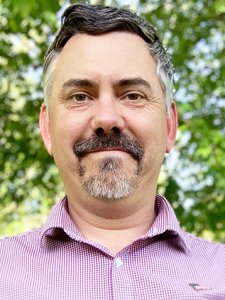
Peter Buck
Peter Buck manages academic programming for Penn State’s Sustainability Institute. He connects and catalyzes faculty, staff, students, and the public to imaginatively integrate sustainability into academics, outreach, operations, and research. He supports programming with competencies-based reviews and revision for majors, minors, courses, and units, guest-teaching, and faculty development, as well as strategic support for emerging initiatives that cross traditional academic and disciplinary boundaries. Peter and his interns also research, catalyze, and support local schooling for sustainability, democratic decision-making in the Anthropocene on campus and in the community, and environmental justice. Peter holds a Ph.D. in Educational Theory and Policy and an M.A. and a B.A. in Music with a minor in Creative Writing.

Lindsay Byron
Lindsay Byron is an environmental group manager at Pennsylvania Department of Environmental Protection.

Dan Cahoy
Dan Cahoy specializes in the teaching and research of intellectual property law, as well as general business law concepts. He has published numerous articles in academic law journals on topics such as IP and alternative energy policy, business and human rights, FDA regulatory policy, reforming the U.S. patent system, the use of contracts to extend limited intellectual property rights, and the use of experimental economics to improve jury studies. Professor Cahoy served on the Editorial Board of the peer-reviewed American Business Law Journal from 2005-2010, including as the Editor-in-Chief, and is a Past President of the Academy of Legal Studies in Business. In 2021, Professor Cahoy was awarded the Milton S. Eisenhower Award for Distinguished Teaching, Penn State’s highest award for tenured faculty members engaged in undergraduate instruction.
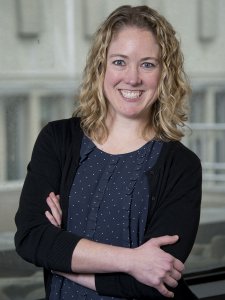
Sanya Carley
Sanya Carley is O’Neill Professor and Director of the Master of Public Affairs programs at the O’Neill School of Public and Environmental Affairs, Indiana University. Her research focuses on energy justice as well as on policies aimed at advancing the innovation of low-carbon and efficient energy technologies in both the electricity and transportation sectors. In her most recent projects, she and collaborators study the incidence of energy insecurity among U.S. households and the equity and justice dimensions of the U.S. energy transition. She is currently serving as a contributing author for the Mitigation Chapter of the 5th US National Climate Assessment.

Shawn Clark
Shawn M. Clark is the Clinical Professor of Innovation and Entrepreneurship, Michael J. Farrell Endowed Professor for Entrepreneurship. His expertise include business architecture modeling, corporate innovation and entrepreneurship, global prescience, and strategic alignment. He earned his Ph D in Business Administration, Management and Organization from Penn State.

Luke Cowell
Luke Cowell is a Product Development Team Leader at Solar Turbines. In this role, he leads cross-functional teams to develop new product capabilities for Solar's gas turbines, primarily in the area of the gas turbine combustion and fuel systems. He has been a leading contributor to the introduction and product improvements to Solar’s SoLoNOx gas turbines.

Thomas Croft
Thomas Croft is the executive director of the Steel Valley Authority (SVA), the earliest and most innovative initiative fighting to restore manufacturing in Pittsburgh, the commonwealth, and the rust belt. Started as a small, regional initiative responding to the dramatic loss of the steel industry impacting Pittsburgh and the Mon Valley, the Steel Valley Authority (SVA) has evolved into a nationally acclaimed leader in layoff aversion. SVA drives both new economic policy and innovative programs to effectively save and create manufacturing jobs across the United States. For more than three decades, the SVA has contributed to stable communities by saving nearly 30,000 productive economy jobs.

Yiyun 'Ryna' Cui
Ryna Cui is an Assistant Research Professor and Co-Director for the China Program at the Center for Global Sustainability (CGS), University of Maryland School of Public Policy. Dr. Cui is an expert in global coal transition and climate and energy policies in China. She leads the Global Coal Transition Project at CGS that focuses on rapid coal phaseout pathways both globally and in key countries of interest, including China, India, and other coal-heavy economies. As the China Program co-lead, Dr. Cui also manages the development and implementation of CGS's China program portfolio. She was a contributing author for the IPCC 6th Assessment Report (Chapter 6 Energy Systems, Working Group III).
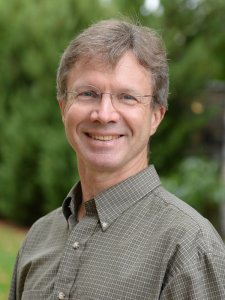
Ken Davis
Ken Davis is professor of atmospheric and climate science in the Department of Meteorology and Atmospheric Science at Penn State. He studies the earth's carbon and water cycles, boundary layer meteorology, and land-atmosphere interactions, including turbulent flux measurements, trace gas mixing ratio measurements and lidar remote sensing. His group also employs atmospheric models and models of ecosystem biogeochemistry and hydrology to synthesize and interpret complex observations. He has led a number of innovative field studies including NASA Atmospheric Carbon and Transport (ACT) - America, the NACP Midcontinent Intensive regional study (MCI), and the Indianapolis Flux experiment (INFLUX). His research group uses a variety of atmospheric measurements and numerical models to quantify the sources and sinks of carbon dioxide and methane in the earth's climate system.
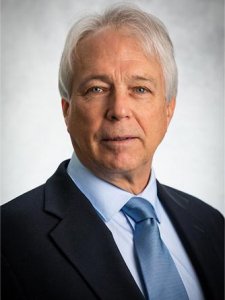
Richard Dennis
Richard Dennis is a researcher in the field of advanced turbine development for the Department of Energy's National Energy Technology Laboratory. He is the technology manager of NETL’s Supercritical Carbon Dioxide (sCO2) Power Cycle program, which is advancing technologies to further improve power cycle efficiencies, reduce emissions and lower costs. His research has included pressurized fluidized-bed combustion, gasification and gas stream particulate cleanup for advanced coal-based power generation and advanced fossil fuel power generation, including coal combustion, gasification, fuel cells and gas turbines. He received his undergraduate and master’s degrees in mechanical engineering from West Virginia University.

Satadru Dey
Satadru Dey is an assistant professor of mechanical engineering at Penn State. Prior to that, he was an assistant professor of electrical engineering at University of Colorado Denver from 2017 to August 2020. He received his Ph.D. in Automotive Engineering from Clemson University in 2015. He was a postdoctoral researcher at University of California, Berkeley from 2015 through 2017. During the period of 2010-12, he worked for General Electric Company as a control engineer. His research interest lies in control of energy and transportation systems in smart cities.

Suvrat Dhanorkar
Suvrat Dhanorkar is an associate professor of supply chain management in the Smeal College of Business. His expertise includes sustainable supply chains, environmental operations, and circular economy. He earned his Ph.D. in Business Administration, Econometrics, from the University of Minnesota.

Lara Fowler
Lara Fowler is an attorney and mediator who focuses on environmental, energy, and natural resource law, with a specific focus on water-related issues. She has a joint appointment between Penn State Law and the Penn State Institutes of Energy and the Environment where she is working on questions related to water, the Chesapeake Bay, and energy. Prior to joining Penn State, she was an attorney at Gordon Thomas Honeywell LLP in Seattle, Washington, where she focused on mediation and dispute resolution of complex natural resource issues, as well as representing clients facing regulatory hurdles in the environmental and energy fields. She has worked on issues such as who is entitled to store groundwater in the greater Los Angeles area, flooding issues in the Chehalis Basin, Washington State’s second-largest river basin, and energy issues in the Pacific Northwest. Before pursuing a legal career, she was a senior water resources coordinator with the Oregon Water Resources Department.

Caitlin Grady
Caitlin Grady is an assistant professor of civil and environmental engineering. She holds a dual appointment in the Penn State College of Engineering Department of Civil and Environmental Engineering and in the College of the Liberal Arts’ Rock Ethics Institute. In 2018, Grady was named the inaugural faculty fellow for the Center for Security Research and Education. Grady also holds a courtesy appointment in the School of International Affairs. Prior to joining Penn State, Grady worked in various environmental policy roles for the U.S. House of Representatives, the U.S. Department of Energy, and the U.S. Department of State. In these roles, she worked on a myriad of issues including water and energy, agriculture, air quality, budget & appropriations, international development, and diplomatic engagement. Most recently, Grady spent two years on the U.S. State Department negotiating team for the Montreal Protocol Treaty and it’s recently adopted Kigali Amendment.

Emily Grubert
Keynote Speaker
Dr. Emily Grubert is the Deputy Assistant Secretary for the Office of Carbon Management in the Office of Fossil Energy and Carbon Management (FECM). In this role, she oversees FECM’s Carbon Management program, which focuses on minimizing the climate and environmental impacts of fossil energy through technology pathways including carbon capture, carbon dioxide (CO2) removal, CO2 conversion into products, reliable CO2 storage, and hydrogen production with carbon management.
Dr. Grubert is a civil engineer and environmental sociologist who studies and informs decision making regarding infrastructure systems, particularly related to justice-centering decarbonization of the U.S. energy system. Her expertise includes studying life cycle socioenvironmental impacts associated with future policy and infrastructure.
Dr. Grubert is an Assistant Professor of Civil and Environmental Engineering and, by courtesy, of Public Policy at the Georgia Institute of Technology. She holds a Ph.D. in Environment and Resources from Stanford, an M.S. in Environmental and Water Resources Engineering and an M.A. in Energy and Earth Resources from UT Austin and a B.S. in Mathematics and Atmosphere/Energy Engineering from Stanford.

Tamy Guimarães
Tamy Guimarães joined the Department of Mechanical Engineering at Penn State as an assistant professor in July 2021. Her work includes improving experiments in fluid dynamics and aerodynamics through the development of instrumentation and measurement techniques. She was born in Brazil and graduated with a Bachelor’s Degree in Energy Engineering from Universidade Federal do ABC. She studied abroad for a year at UC Davis, where she fell in love with experimental research. She received her Ph.D. from Virginia Tech in 2018 and lived in Munich, Germany until 2021.

Derek Hall
Derek Hall is the Program Lead and non-tenure line Assistant Professor of Energy Engineering in the Department of Energy and Mineral Engineering. He is also an ORISE Faculty Fellow for the National Energy Technology Laboratory. Prior to joining the Department of Energy and Mineral Engineering, he was an Assistant Research Professor for the Earth and Mineral Sciences Energy Institute. His PhD work focused on the development of a novel electrochemical energy conversion process for producing hydrogen gas within a thermochemical cycle for the Argonne National Laboratory, and his postdoctoral work involved validating novel water chemistry programs for power generation units using electrochemical methodologies for the Electric Power Research Institute, and the development of a new standard Gibbs energy model for aqueous species for hydrothermal systems above and below the critical point of water. Dr. Hall’s research interests include electrochemical energy conversion systems, electrochemical sensors and the thermodynamics of electrolyte solutions. He has contributed to several EPRI technical reports and more than twenty academic publications.

David Haushalter
David Haushalter's research focuses on corporate finance, particularly corporate risk management. Current projects examine the interaction between finance and environmental risks. He joined Penn State's Smeal College of Business in 2004. Prior to joining Smeal he was an educational and corporate research associate with Susquehanna International Group and an assistant professor of finance at the University of Oregon. He has also taught at the University of Virginia, Darden School of Business. David was an equity options trader before pursuing his Ph.D. at Purdue University.
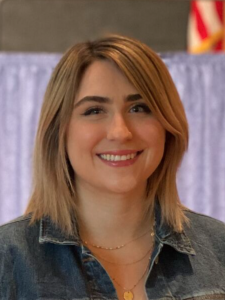
Carolyn Heckman
Carolyn Heckman graduated with a Bachelor’s of Science in Energy and Sustainability Policy and a minor in Geography from Penn State in May 2022. From August 2021 to May 2022, Carolyn interned with the PA DEP and ICLEI as part of LCAP program. During this internship, Carolyn and her partner, Benjamin Thomas, had to calculate a greenhouse gas emission inventory and forecast as well as draft a climate action plan framework for Millersville Borough, Lancaster County, PA. Carolyn is now employed with the Pennsylvania Council of Trout Unlimited, a watershed conservation non-profit organization, as their Community Engagement Coordinator.

Joel Hicks
Joel Hicks is an adjunct professor at George Mason University’s Schar School of Policy and Government where he also received his Ph.D. in Public Policy. He is a former U.S. Naval Officer who served in the nuclear submarine community as well as completing multiple assignments in DoD space acquisition and operational communities. He obtained his Nuclear Engineer credentials through Naval Reactors, and his last active duty assignment was as Deputy Director, Joint Space Operations Center (JSpOC), Vandenberg AFB, CA. He retired at the rank of Commander after a 20-year active-duty career. Today, he frequently writes about demand-side management (DSM) of energy systems with a focus on energy efficiency, behavioral economics, and public sector energy governance/institutions. His formal education includes: M.S. Electrical Engineering, Naval Postgraduate School, M.A. National Security and Strategic Studies, Naval War College, M.A. International Science and Technology Policy, The George Washington University, and a B.S. Electrical Engineering, The George Washington University. He lives with his partner, Megan, and two dogs (Ginger and Tucker). Mr. Hicks is the Chair of the Sustainability and Community Planning Committee and Vice-Chair of the Public Safety Committee. He is also the chair of the Borough's Climate Action Commission.

Christoph Hinkelmann
Christoph Hinkelmann is a clinical associate professor of finance in the Smeal College of Business. Before joining Smeal, he served on the faculty at Wake Forest University, Auburn University, and Texas A&M University. He also spent five years as a vice president and portfolio manager at Allianz Global Investors Capital and Nicholas-Applegate Capital Management working with the firms' quantitative equity strategies. Prior to his graduate study, Professor Hinkelmann served in the Division of Monetary Affairs at the Board of Governors of the Federal Reserve System.

Carl J. Jackson
Carl J. Jackson is a partner of Prospect14, a company that prospects sites for solar energy. Most recently, he led project origination and business development for Cypress Creek Renewables, where he developed, took through EPC, and financed solar energy projects. Since entering the solar industry in 2010, Carl has contracted and financed 633MW of projects in 10 states. Prior to Cypress Creek, Carl spearheaded growth as Sol Systems’ Director of Project Finance, leading Northeast project origination, liaising with the company’s investment team, developers, and sponsors seeking capital. Prior to entering the solar industry, Carl cofounded a scholastic products company, Graduation Station, which he sold in 2010, and worked in financial management and energy trading for Morgan Stanley Smith Barney. Carl received his BS from the Smeal College of Business at Penn State in Business Logistics, Supply Management & Finance. He holds Series 7 & 63 trading licenses. At Penn State Carl was a four-year scholarship athlete and co-captain of the basketball team.

Kimberly L. Jones
Dr. Kimberly L. Jones is a professor of Environmental Engineering, Chair of the Department of Civil and Environmental Engineering and Associate Dean for Research and Graduate Education at Howard University in Washington, DC. She holds a B.S in Civil Engineering from Howard University, a M.S. in Civil and Environmental Engineering from the University of Illinois in Champaign, IL and a Ph.D. in Environmental Engineering from The Johns Hopkins University. Dr. Jones’ research interests include developing membrane processes for environmental applications, physical-chemical processes for water and wastewater treatment, remediation of emerging contaminants, global drinking water quality, environmental justice, and environmental nanotechnology. Dr. Jones currently serves on the Chartered Science Advisory Board of the US Environmental Protection Agency, and as chair of the Drinking Water Committee of the Science Advisory Board.

Nicholas P. Jones
Nicholas P. Jones is The Pennsylvania State University’s Executive Vice President and Provost. As Executive Vice President, Dr. Jones serves as the chief executive officer in the President’s absence, and he is centrally involved in most University operations. As Provost, Dr. Jones is the University’s chief academic officer, responsible for the administration of all of Penn State’s educational and research programs. He is charged with enabling and driving the success of about 17,000 faculty and nearly 100,000 students at Penn State’s 25 campuses, including 24 throughout the Commonwealth of Pennsylvania and the online World Campus. He also serves as the University’s chief budget officer.
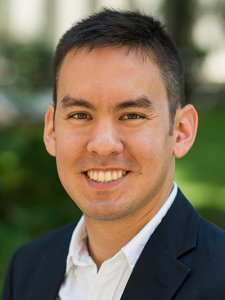
Paul Kishimoto
Paul Natsuo Kishimoto is a Research Scholar in the Energy (ENE) and Transitions to New Technologies (TNT) programs, with a research focus on transportation demand growth in emerging economies; consequent energy demand and environmental impacts; and technology and policy for sustainable mobility. He joined IIASA in August 2018, after completing his PhD in Engineering Systems and SM in Technology and Policy at the Institute for Data, Systems, and Society and the Joint Program on the Science & Policy of Global Change at the Massachusetts Institute of Technology. He was a contributing author for the IPCC 6th Assessment Report (Chapter 10 Transport, Working Group III).

Mark Kleinginna
Mark Kleinginna is an adjunct lecturer in the College of Earth and Mineral Sciences. He is interested in the entire continental energy topology, including research and expert testimony in rate making, electricity transmission, energy markets, renewable energy systems, decarbonization of the built environment, solar integration and economics, and thermal energy networks.

Sarah Klinetob Lowe
Sarah Klinetob Lowe has over 10 years of work and research experiences with high performance design, energy retrofits, solar photovoltaic systems, and student engagement, and is a Certified Passive House Consultant (CPHC). As the High-Performance Housing Specialist for the Pennsylvania Housing Research Center, she develops and delivers educational programs for Pennsylvania’s residential construction industry, serves as Conference Secretariat for the biennial Residential Building Design & Construction Conference, and is the lead advisor for the Penn State Solar Decathlon Design Challenge team. Sarah holds an M.S. in Architectural Engineering, and B.S. degrees in Engineering Science and German, from Penn State.
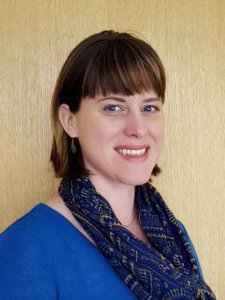
Melissa Kreye
Melissa Kreye conducts interdisciplinary, applied research in forest resource management, policy, and economics, and works to deliver information to decision-makers to address place-based problems in socio-ecological systems. Her goal as a scientist and a leader is to advance initiatives that promote robust science, collaboration, environmental sustainability and social equity.

Bruce Logan
Bruce Logan is an Evan Pugh University Professor in Engineering and the Kappe Professor of Environmental Engineering in the Department of Civil and Environmental Engineering at Penn State. His research focuses on developing new renewable energy technologies, such as microbial fuel cells and thermal batteries, for achieving an energy sustainable water infrastructure; wastewater treatment; and bioremediation.
He serves as director of both the Engineering Energy and Environmental Institute and the Hydrogen Energy Center in the College of Engineering. He also is an associate director of Penn State’s Institutes for Energy and the Environment.
He earned his Ph.D. in environmental engineering from the University of California, Berkeley. He earned his M.S. in environmental engineering and B.S. in chemical engineering from the Rensselaer Polytechnic Institute.

Stephen Lynch
Stephen Lynch is an associate professor in Penn State's Department of Mechanical Engineering. He has expertise in applications of convective heat transfer and aerodynamics for gas turbine engines. His work has utilized state-of-the-art experimental diagnostics, supported by computations. His research interests include high speed aerodynamics and heat transfer in turbines, interaction of main gas path and secondary flows, advanced airfoil cooling schemes (film and internal channel cooling), three-dimensional boundary layers, and development of advanced fluid and heat transfer diagnostic tools.

Anthony Marchese
Anthony Marchese is currently the Chairman of Texas Mineral Resources and has served as a director since December 2009. He is currently the CEO of EV Blockchain Corp and President of Marchese Management Co. From May 2012 until August 2017, Mr. Marchese was the managing director of capital markets at TriPoint Global Equities. Mr. Marchese had served as a Senior Vice-President with Axiom Capital Management, Inc., a New York City-based FINRA member broker/dealer. Mr. Marchese also serves as the general partner and chief investment officer of the Insiders Trend Fund, LP, an investment partnership whose mandate is to invest in those public companies whose officers and/or directors have been active acquirers of their own stock. Mr. Marchese's prior experience includes Monarch Capital Group, LLC, Laidlaw Equities, Southcoast Capital, Oppenheimer & Co, Prudential-Bache and the General Motors Corporation. Mr. Marchese served in the military with the Army Security Agency and the U.S. Army Intelligence and Security Command, where he carried a Top Secret security clearance. He has been a long-time arbitrator for the Financial Industry Regulatory Authority (FINRA). Mr. Marchese received an MBA in Finance from the University of Chicago.

Leslie Marshall
Keynote Speaker
Leslie Marshall oversees all aspects of the Society of Fire Protection Engineers Foundation's programming, represents the Foundation in external partnerships and activities, drives organizational strategy and operations, liaises with the Board of Governors, and supervises all SFPE Foundation staff. Prior to joining the SFPE Foundation, Dr. Marshall served as founding Associate Director of the Center for Sustainable Business at the University of Pittsburgh, overseeing all aspects of the center’s programming. In that role, she was also Co-Principal Investigator, Project Manager, and Lead Author for the Marshall Plan for Middle America (MP4MA) Roadmap, an award-winning, non-partisan, multi-sectoral research effort to envision a more equitable and sustainable regional economic future for the Ohio River Valley and Upper Appalachia.
She is an affiliate of the Economic and Social Rights Research Group of the University of Connecticut’s Human Rights Institute and sits on the Advisory Council of the Ohio River Valley Institute. She holds a Ph.D. and an M.A. in Political Science from the University of Pittsburgh and a B.A. in Philosophy, Politics, and Economics from Denison University.

Alfonsa Mejia
Alfonso Mejia is an associate professor in Penn State's Department of Civil and Environmental Engineering. His research interests include hydrology, floods and droughts, hydrometeorology, urban-water systems, water resources sustainability, and ecohydrology. His research group works to better understand and characterize the intertwined dynamics of water and other systems, such as urban, economy, climate, and ecosystems. He and his group also like to show how such knowledge can be used to inform water-related policy and solve water resource and engineering problems.

Anne Menefee
Anne Menefee is an Assistant Professor of Energy and Mineral Engineering at the Pennsylvania State University and a co-funded faculty in the Institutes of Energy and the Environment (IEE). Her research is broadly focused on advancing sustainable energy and carbon management systems. Much of this work targets subsurface systems that can be engineered for low-carbon energy production and carbon sequestration, which are indispensable to avert the worst impacts of climate change. At a fundamental level, she is working to understand how geochemical reactions impact fracture stability and propagation in stressed geologic systems, with applications to mineral scale prevention and emerging CO2-enhanced energy recovery technologies in tight reservoirs. At a systems level, her work evaluates the life cycle environmental implications of emerging technologies that can both curb net emissions and prove self-sustaining in the market. In combination, the results of this work advance our understanding of complex subsurface phenomena and inform optimal approaches to decarbonize the energy sector. Before joining Penn State, she did her PhD at the University of Michigan with two stints at Los Alamos National Lab.

Laura Miller
Laura Miller is with the Energy and Sustainability department in the Office of Physical Plant for Penn State. She manages the Energy Savings Program to lower energy consumption, reduce carbon emissions and improve operations. She oversees energy and utility master planning, and is responsible for applying energy management and environmentally sustainable practices across the University, as well as investigating new and emerging technologies. Dr. Miller has also held positions in the University’s Outreach and Online Education as a Program Manager, and Human Resources Manager. She has worked in the College of Engineering as an Energy Advisor to the Commonwealth Agencies, has taught capstone courses for Architectural Engineering, and has served as a guest lecturer for Energy Engineering and Industrial Engineering. She holds a Bachelor of Science degree in Mechanical Engineering Technology, and a Doctoral degree in Workforce Education and Development from Penn State. She is also a licensed Professional Engineer in Pennsylvania.

Peter Minor
Peter Minor is the Director of Science & Innovation at Carbon180, an NGO focused on reversing two centuries of carbon emissions. His knowledge of the latest science helps the team craft US federal policy recommendations that catalyze the carbon removal industry. Before joining the fight against climate change, he built a startup accelerator and venture fund focused on frontier innovation. He is a staunch believer that technology can help solve humanity’s greatest challenges. Peter holds a PhD in Mechanical Engineering from UC Berkeley and is based in the San Francisco Bay Area.
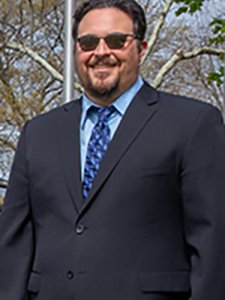
Christopher Nafe
Christopher Nafe is an Energy Program Specialist with the Pennsylvania Department of Environmental Protection.
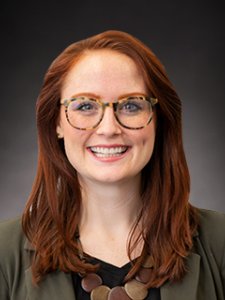
Rebecca Napolitano
Rebecca Napolitano is an assistant professor of architectural engineering at Penn State. She is also the director of the BEAM Lab. As an NSF Graduate Fellow, she received her Ph.D. in Civil Engineering from Princeton University in 2020. Additionally, she received her bachelor’s in physics and classical languages at Connecticut College in 2015. She has received a variety of awards for her research, teaching, and mentoring including Female Innovator of the Year, Woman of Innovation, the School of Engineering and Applied Science at Princeton Award for Excellence, and the Graduate School of Princeton University Teaching award. Her current research initiatives include the use of unmanned aerial vehicles for infrastructure inspection, the fusion of nondestructive evaluation for multi-modal documentation, finite-distinct element modeling for simulating system interactions, and augmented reality for synthesizing disparate data sets into an intuitive cyber-physical system.

Leila Niamir
Leila Niamir is a research scholar jointly associated with the Sustainable Service Systems and Transformative Institutional and Social Solutions research groups of the IIASA Energy, Climate, and Environment Program. She is a computational economist working on energy and climate change mitigation. Her research focus is on the science-policy-society interface, agent-based modeling, behavioral and lifestyle changes, the Sustainable Development Goals (SDGs), and wellbeing. In addition to her association with IIASA, Niamir is a research fellow at Mercator Research Institute on Global Commons and Climate Change (MCC) and the Technische Universitat Berlin, Germany. She was a contributing author for the IPCC 6th Assessment Report (Technical Summary and Chapter 5 Demand, services and social aspects of mitigation, Working Group III).

Calvin Norman
Calvin Norman is a Forestry and Wildlife Extension Educator. He is passionate about helping forests be the best they can be by educating landowners, agencies, and those who interact with the outdoors about forests and wildlife, management, forest carbon, climate change, and other matters that impact forest.
Calvin is a Wisconsin native, who moved to Pennsylvania after earning a Master of Science degree from Clemson University. At Clemson, he worked to improve management practices for controlling Chinese tallow (Triadica sebifera), a small invasive tree, on Parris Island and a nearby wildlife research station. He has also worked as an industrial forest in Michigan's Upper Peninsula, where he co-managed 10,000 acres of forest. He earned a Bachelor of Science degree from Michigan Technological University with a dual major in in Forestry and Wildlife Resources.
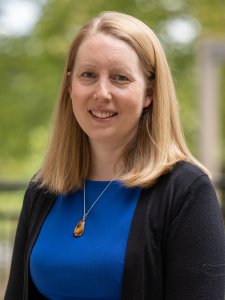
Jacqueline O'Connor
Jacqueline O'Connor is an associate professor of mechanical engineering and director for Gas Turbine Research, Education, and Outreach in the College of Engineering. Her research focuses on unsteady combustion phenomena in power and propulsion technologies, including power generation gas turbines, aircraft engines, and diesel engines, using high-speed laser diagnostics.
Prior to joining Penn State, she was a postdoctoral researcher at Sandia National Laboratories in Livermore, California in the Engine Combustion Department.
She earned her Ph.D. and M.S. in aerospace engineering from Georgia Tech and her B.S. in aeronautics and astronautics from MIT.

Esther Obonyo
Esther Obonyo is the founding Director of the Global Building Network, a partnership between the United Nations Economic Commission for Europe and Penn State. The consortium that is in place comprises 40 globally distributed institutions that are collectively working on all aspects of building performance. One of the thrust research areas for the consortium focuses on the frontier challenges in areas such as building components and materials that can promote health, safety, and wellbeing. Dr. Obonyo is also an Associate Professor of Engineering Design and Architectural Engineering. Her primary research is in the areas of construction safety, sustainable structural materials for building envelope systems, data-driven decision support systems, science policy, and building performances for vulnerable populations. Dr. Obonyo is a 2015/ 2016 Jefferson Science Fellow placed with the USAID Global Development Lab in DC where she served as a Senior Policy Advisor for the Data and Research Team. She also supported some of the evidence generation work for Digital Development. Dr. Obonyo has extensive industry experience, having worked as a Construction Engineer, Project Manager, and Innovations Analyst in several engineering and construction companies in Kenya, the United Kingdom, and the United States.
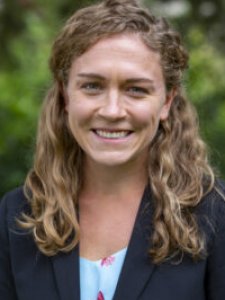
Emily Pakhtigian
Emily Pakhtigian is an assistant professor at the School of Public Policy at Penn State. Her research lies at the intersection of environmental, development, and health economics. She examines how households respond to environmental risks such as poor water quality and unimproved sanitation access to indoor and outdoor air pollution, among others. Specifically, she seeks to understand how social and household factors mediate demand for technologies that avert or mitigate environmental risk, the sustainability of technological adoption, and the long term health and human capital implications of low investment in averting and mitigating technologies.

Wayne Palmer
Wayne Palmer is Executive Vice President at the Industrial Minerals Association – North America. IMA-NA is the representative voice of companies that extract and process a vital group of raw materials known as industrial minerals—including critical minerals and rare earth elements. Industrial minerals are the ingredients for products essential to our everyday lives, from the batteries that power electric vehicles, to the glass in a car’s touchscreen, to the brine PennDOT sprays on roads to enable safe driving in winter. Prior to joining IMA-NA, he served as Principal Deputy Assistant Secretary of Labor at the Mine Safety & Health Administration, where he promoted safe and healthful workplaces for 250,000 miners working across the nation's 12,000 metal/non-metal mines, and 83,000 miners across 1,000 coal mines. A native of Pennsylvania, Wayne holds a B.A. in Political Science from Penn State and a Master of Government Affairs from the University of Pennsylvania.

Juan Parra
Juan Parra is the Director of Community Engagement at Nexamp, a community solar firm operating in New York state that offers solar and energy storage solutions. He works to expand access to community solar to low-income households through community-based partnerships to maximize the benefits for low-income customers. Working through an equity and advocacy lens, the goal is to go past simply enrolling low-income households to creating community wealth building opportunities that intersect with other social and environmental priorities.

Wei Peng
Wei Peng is an assistant professor of international affairs and civil and environmental engineering with a joint appointment with the School of International Affairs and the College of Engineering. Peng’s research focuses on the environmental and socioeconomic impacts of energy policies in both emerging markets and advanced economies.
Prior to her arrival at Penn State, Peng was a Giorgio Ruffolo Postdoctoral Research Fellow at Harvard University’s Kennedy School of Government.
She earned her Ph.D. in science, technology, and environmental policy from Princeton University and her B.S. in environmental science from Peking University.
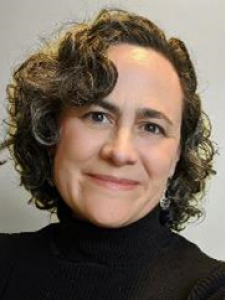
Sharon Pillar
Sharon Pillar is the founder and executive director of the Pennsylvania Solar Center, which she started in 2018 because the state was not realizing its full potential for clean energy and there was a noticeable gap of information and organizing activity to move solar energy forward. Sharon believes that solar energy will be a major contributor to the new energy economy by creating tens of thousands of jobs in our state, and will bring billions of dollars of investment to our communities and play an important role in decreasing carbon and air pollution. Sharon also owns the Hot Earth Collaborative LLC, a consultancy she started in 2013 to advance clean energy markets that transform our communities, economy and environment. Since 2016 she has also consulted for Environmental Entrepreneurs (E2) as their Pennsylvania Advocate working with businesses across the state to advocate for clean energy. During her seven years at PennFuture, Sharon served as the Project Manager for solar programs and worked as a climate change advocate. Prior to her work in clean energy, Sharon worked in the pharmaceutical research field for 15 years. Sharon holds an M.A. in Earth Literacy from St. Mary’s-of-the-Woods College in Terre Haute, IN, and a B.A. in Psychology from Mansfield State University in Mansfield, PA.

Sarma Pisupati
Sarma Pisupati is a professor of energy and mineral engineering and Director of the Center for Critical Minerals at Penn State.
His main areas of research are the extraction of critical minerals from clays and waste coal and coal by-products. Advanced combustion methods such as oxy-fuel combustion and chemical looping combustion for CO2 capture and sequestration; slagging and fouling in gasification; coal and biomass co gasification and energy conservation methods. He has published over 200 technical papers and organized over 30 technical symposia related to energy and the environment.
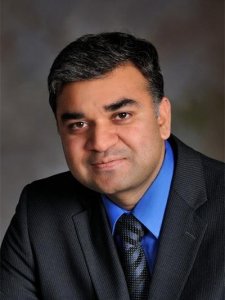
Shashank Priya
Shashank Priya is associate vice president for research and director of strategic initiatives in the Office of the Vice President for Research (OVPR). His research is focused in the areas related to multifunctional materials, energy and bio-inspired systems. He has published over 400 peer-reviewed journal papers/book chapters and more than 60 conference proceedings covering these topics. Additionally, he has published more than ten book chapters, ten US patents, and ten edited books. He is the founder and chair of the Annual Energy Harvesting Meeting. His research is funded by DARPA, AFOSR, ARO, NSF, DOE, ONR and several industries. He is also serving as the member of the Honorary Chair Committee for the International Workshop on Piezoelectric Materials and Applications (IWPMA).

Chris Rahn
Christopher D. Rahn graduated from the University of Michigan with a B.S. in mechanical engineering in 1985 and an M.S. from the University of California, Berkeley in 1986. After three years as a Research and Development Engineer at Ford Aerospace, he returned to Berkeley to pursue a Ph.D. After graduating from Berkeley in 1992, Dr. Rahn joined the Department of Mechanical Engineering at Clemson University. In 2000, he moved to the Pennsylvania State University where he is now the J. 'Lee' Everett Professor of Mechanical Engineering, Associate Dean for Innovation in the College of Engineering, Director of the Mechatronics Research Laboratory, and Co-Director of the Battery and Energy Storage Technology Center. Dr. Rahn's research work on the modeling, analysis, design, and control of mechatronic systems has resulted in three books (including Battery Systems Engineering), almost three hundred peer reviewed publications, and several patents. An ASME Fellow, Dr. Rahn is the Technical Editor of an ASME journal and chaired an ASME technical committee and the executive committee of the ASME Design Engineering Division.

Warren Reed
Warren Reed, ACR Forestry Analyst, provides technical expertise to support forest carbon offset projects in the California compliance and voluntary markets. He is responsible for reviewing project listing applications, data reporting, verification and the development and approval of new quantification methodologies. Before joining the ACR team Warren worked at Penn State researching forest ecology and carbon dynamics in the central Appalachian Mountains from an interdisciplinary perspective investigating the influence that bedrock geology exerts on forest carbon storage and uptake. His work utilized data from forests at multiple scales, from annual resolution tree-ring data to larger scale forest inventories. He has worked extensively across California and Oregon researching wildland fuels treatments with the United States Geological Survey and U.S. Forest Service and has also worked in coastal forests of South Africa researching carbon storage.

Brandi Robinson
Brandi Robinson is an Assistant Teaching Professor for the John and Willie Leone Family Department of Energy and Mineral Engineering here at Penn State. Her primary focus is in the Energy and Sustainability Policy program where she teaches classes related to energy and climate policy, the human dimensions of a changing climate, and the capstone experience for the major. Additionally, Brandi works on local climate policy initiatives. Most recently she chaired the Ferguson Township Climate Action Committee which recently delivered a community-wide greenhouse gas emissions inventory and comprehensive set of recommended mitigation and adaptation actions to the Board of Supervisors and Township Manager. Additionally, she has chaired the Centre Region Planning Agency’s Technical Advisory Group in service of the development of a regional climate action and adaptation plan. Prior to returning to Penn State to teach, Brandi was a policy analyst for Environmental Credit Corp, a local greenhouse gas offset project developer.
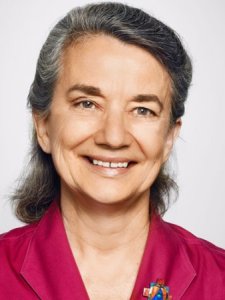
Liz Robinson
Liz Robinson is the executive director of the Philadelphia Solar Energy Association (PSEA), a local nonprofit dedicated to expanding solar energy across the state. Prior to coming to PSEA, Liz founded and directed the Energy Coordinating Agency (ECA) for more than 30 years. ECA provides energy efficiency, education, workforce development, home repair and bill payment assistance services to thousands of low income households every year. Liz also co-founded and directed the Keystone Energy Efficiency Alliance (KEEA) Pennsylvania’s energy efficiency trade association. She also managed the Energy Cooperative Association of Philadelphia (ECAP), expanding it to a regional organization and taking it into the renewable energy market.

Tom Richard
Tom Richard is a professor of agricultural and biological engineering in the Department of Agricultural and Biological Engineering and the director of the Penn State Institutes for Energy and the Environment. His research focuses on the application of fundamental engineering science to microbial ecosystems, developing innovative strategies for a more sustainable agriculture and the emerging bio-based economy.
He currently directs the Northeast Regional Sun Grant Center for the USDA, serves on the Agricultural Science Committee of the U.S. EPA's Science Advisory Board, and is the deputy technical director for the DOE's National Risk Assessment Partnership for geologic carbon sequestration.
He received his Ph.D. in biological engineering and M.S. in agricultural engineering from Cornell and his B.S. in political economy of natural resources from the University of California at Berkeley.
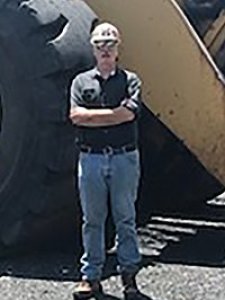
Pete Rozelle
Pete Rozelle serves as an advisor on mineral resources to the Penn State College of Earth and Mineral Sciences, from which he holds a Ph.D. He is also a retired Headquarters Program Manager for the Department of Energy. In that role, he managed the Rare Earths, Gasification, and Turbines programs for the Office of Fossil Energy. Prior to that, he worked in the mining, metallurgical, and power industries.

Feifei Shi
Feifei Shi currently serves as Assistant Professor of Energy Engineering in the John and Willie Leone Family Department of Energy and Mineral Engineering. Dr Shi’s research interests lie broadly at the intersection of surface chemistry, material science and mechanical engineering, with emphasis on integrated energy systems, i.e. innovation in conversion, storage, transport, and consumption systems. She holds a B.S. degree in Chemistry from Fudan University, China in 2010, and Ph.D. degree in Mechanical Engineering from the University of California, Berkeley in 2015. Before joining Penn State in August 2019, Dr. Shi was a postdoctoral researcher in Material Science and Engineering department, Stanford University.

David Smedick
David Smedick is a senior associate with RMI’s Carbon-Free Buildings team. He works on federal and international policy initiatives to accelerate the building sector’s move off fossil fuels, encourage affordable and holistic retrofits, and grow good jobs. Prior to joining RMI David spent eight years at the Sierra Club working with the Beyond Coal Campaign and the Beyond Dirty Fuels Campaign to build a robust and successful climate justice movement in the Mid-Atlantic. He developed and led efforts to retire coal-fired power plants, stop the expansion of fossil fuel infrastructure, grow clean energy, accelerate energy efficiency, increase electric vehicle commitments, and spark new building electrification campaigns. He previously worked at Southface Energy Institute in Atlanta, GA, focused on commercial green buildings. David is a LEED AP, has a Master of Environmental Management degree from Duke University and Bachelors degree in Environmental Studies from American University. David is also a Senior Fellow in Environment Leadership Program's Chesapeake Regional cohort.

Erica Smithwick
Erica Smithwick, Distinguished Professor of Geography, is a landscape and ecosystem ecologist. She is the Director of the Ecology Institute, and an Associate Director of the Institutes of Energy and Environment, both of which foster interdisciplinary environmental research. Her laboratory group (LEAPS: Landscape Ecology at Penn State) is actively involved in understanding how a wide range of disturbances, especially fire, affect ecosystem function at landscape scales. Current research is focused on the influence of these changes on socio-ecological resilience and sustainability, with special attention to protected area management in Africa and the U.S. She has received numerous research awards from the NSF, NASA, DOE, NPS, the USGS, and beyond. This work is increasingly focused on problems that require inter- and trans-disciplinary teamwork to address complex environmental challenges. One of these projects, called Visualizing Forest Futures, seeks to address how indigenous and western knowledge systems can be best used to address forest sustainability under climate variability, in partnership with the Menominee tribal nation in northern Wisconsin. Another is focused on transdisciplinary graduate training at the Food-Energy-Water nexus.
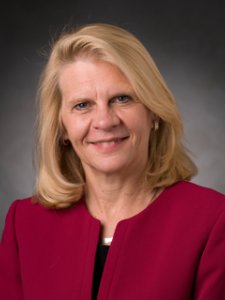
Karen Thole
Karen A. Thole is a Distinguished Professor in the Department of Mechanical Engineering at The Pennsylvania State University. Dr. Thole’s expertise is heat transfer and cooling of gas turbine airfoils through detailed experimental and analytical work that have led to greatly improved gas turbine efficiencies and performance. Thole developed several key technologies including one that dramatically reduces vortical structures in airfoil passages resulting in reduced heat transfer. This fundamental work produced advances now used in industry that improve aerodynamics, reduces cooling, and extends component life. She directs the Steady Thermal Aero Research (START) Lab, which focuses on turbine heat transfer, additive manufacturing, and instrumentation development. Dr. Thole has published over 300 archival journal and conference papers and has supervised over 85 dissertations and theses. She has served on two National Academy of Engineering study committees related to low carbon aviation and advancing gas turbines. She holds two degrees in Mechanical Engineering from the University of Illinois, and a PhD from the University of Texas at Austin.

Adri van Duin
Adri van Duin is a distinguished professor in the College of Engineering's Department of Mechanical Engineering. He is the inventor and main developer of the ReaxFF reactive force field method, which allows for relatively large scale (>> 10,000 atoms) simulations of complex materials, molecules and their interfaces. He has published over 500 papers in peer-reviewed journals. The ReaxFF method is currently used by over 2,500 academic and industrial research groups and is supported my major open-source and commercial simulation software like LAMMPS, AMS, MedeA and Material Studio. van Duin obtained his PhD degree in chemistry from the Delft University of Technology in 1997, after which he held postdoctoral appointments at the University of Newcastle upon Tyne and the California Institute of Technology. In 2008, he joined the Penn State faculty in the Department of Mechanical Engineering. He holds courtesy appointments in Chemistry, Chemical Engineering, Material Science & Engineering and Engineering Science & Mechanics and serves as the director of the Material Computation Center. He also is the CTO of RxFF_Consulting, LLC, a company that provides consulting services associated with ReaxFF development and applications.

Mary Wambui-Ekop
Mary Wambui-Ekop is an affordable housing asset manager for the Planning Office For Urban Affairs (POUA) a non-profit social justice ministry of the Roman Catholic Archdiocese of Boston. Her expertise ranges from preservation of affordable housing assets through property, and portfolio repositioning to maximizing performance through capital planning, green and sustainable design, rehabilitation, debt restructuring and building stakeholder relationships. Mary also serves the Commonwealth of Massachusetts as Councilor in the Energy Efficiency Advisory Council (EEAC) a state body that directs the energy efficiency vision for the Commonwealth of Massachusetts. She is also a co-chair of the EEAC Energy Equity Working Group. Mary’s goal is to open doors of access and opportunity for others especially those in greatest need.

Chao-Yang Wang
Chao-Yang Wang is William E. Diefenderfer Chair Professor of Mechanical, Chemical, and Materials Science & Engineering at Penn State. He has 220+ journal publications, 37,000+ citations, and an H-index of 108. He holds over 140 patents and has published two books, “Battery Systems Engineering” by Wiley and “Modeling and Diagnostics of Polymer Electrolyte Fuel Cells” by Springer. Dr. Wang is known for his innovative work in batteries and fuel cells; particularly for development and commercialization of the battery computer-aided engineering tool, AutoLion, and for pioneering a new battery paradigm with switchable interfaces. The all-climate battery (ACB) he invented was adopted by 2022 Winter Olympics as well as commercialized by several carmakers. His latest inventions on fast charging batteries (FCB), safe, energy dense batteries (SEB) and thermally modulated lithium iron phosphate battery received widespread attention by mainstream media. He is a fellow of National Academy of Inventors (NAI) and American Society of Mechanical Engineers (ASME), and the recipient of many awards, including the inaugural Research Excellency Award from Fuel Cell Division of International Association of Hydrogen Energy (IAHE). Dr. Wang’s expertise covers the transport, materials, manufacturing and modeling of batteries and fuel cells.
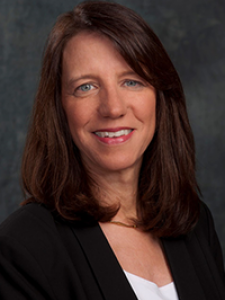
Lora Weiss
Lora G. Weiss was appointed senior vice president for research at The Pennsylvania State University in September 2019. In her role, she is the principal academic and administrative officer for Penn State’s Office of Research. Penn State consistently ranks among the nation’s top 25 public research universities, with fiscal year 2020 annual research expenditures exceeding $1 billion.
Weiss oversees the research work of eleven academic colleges, seven university-wide interdisciplinary research institutes, a university-affiliated research laboratory for the Department of Defense, and offices for sponsored programs, research protections, industry partnerships, technology transfer, innovation, and commercialization.
Weiss is an accomplished scientist and educator with more than 30 years of experience in higher education. With a background in robotics and unmanned systems, Weiss has centered her research on advancing the capabilities of unmanned air, ground, sea surface, and undersea vehicles.

Anna Wendt
Anna Wendt is a Program Manager for Resource Characterization & Technology Development with the Minerals Sustainability Division in the Department of Energy's Office of Fossil Energy and Carbon Management. Anna was previous at the National Energy Technology Lab In Pittsburgh, PA, where she supported the Systems Engineering & Analysis Group as a Sr. Subsurface Energy Analyst. Anna earned her Ph.D. in Geosciences from Penn State where her research focused on the sedimentary geochemistry of the Marcellus Formation. She earned her B.S. and M.S. in Geological Sciences from the University of Rochester, NY.

Hannah Wiseman
Professor Hannah Wiseman is a Professor of Law, Professor and Wilson Faculty Fellow in the College of Earth and Mineral Sciences, and Institutes of Energy and the Environment Co-funded Faculty Member. Professor Wiseman teaches and writes in the areas of Energy Law, Oil & Gas Law, Land Use Regulation, Environmental Law, and Administrative Law. Her work focuses on the mechanics and design of regulation and governance in these areas, including the challenges of determining appropriate governance levels, fostering effective experimentation, and addressing expansions in the scale of regulated activities.
Hannah received her undergraduate degree from Dartmouth College, summa cum laude, and her law degree from Yale Law School, and she clerked for Judge Patrick Higginbotham of the U.S. Court of Appeals for the Fifth Circuit.
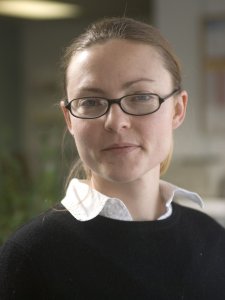
Amanda Woodrum
Amanda Woodrum is a Senior Researcher focusing on issues found at the intersection of health, equity and the economy. After living in New York City and experiencing 9/11, she returned to Ohio determined to make the state the kind of place she wanted to live. She joined Policy Matters Ohio in 2007 after receiving a master’s degree in economics and a law degree from the University of Akron. She conducts research on the role transportation, energy, health and anti-poverty policy can play to promote a more sustainable and equitable economy in Ohio.

Linxiao Zhu
Linxiao Zhu's research involves understanding the fundamentals of how light and heat can be controlled using nanostructured materials, as well as using the knowledge to advance energy efficiency and develop clean energy. His work includes controlling thermal radiation by taking advantage of the strong light-material interaction at the nanoscale. By using nanostructures with feature sizes comparable to the wavelength of this light, various properties of heat and light, such as spectrum, direction, intensity and many others, can be designed and tailored, leading to great opportunities for energy and thermal applications.
